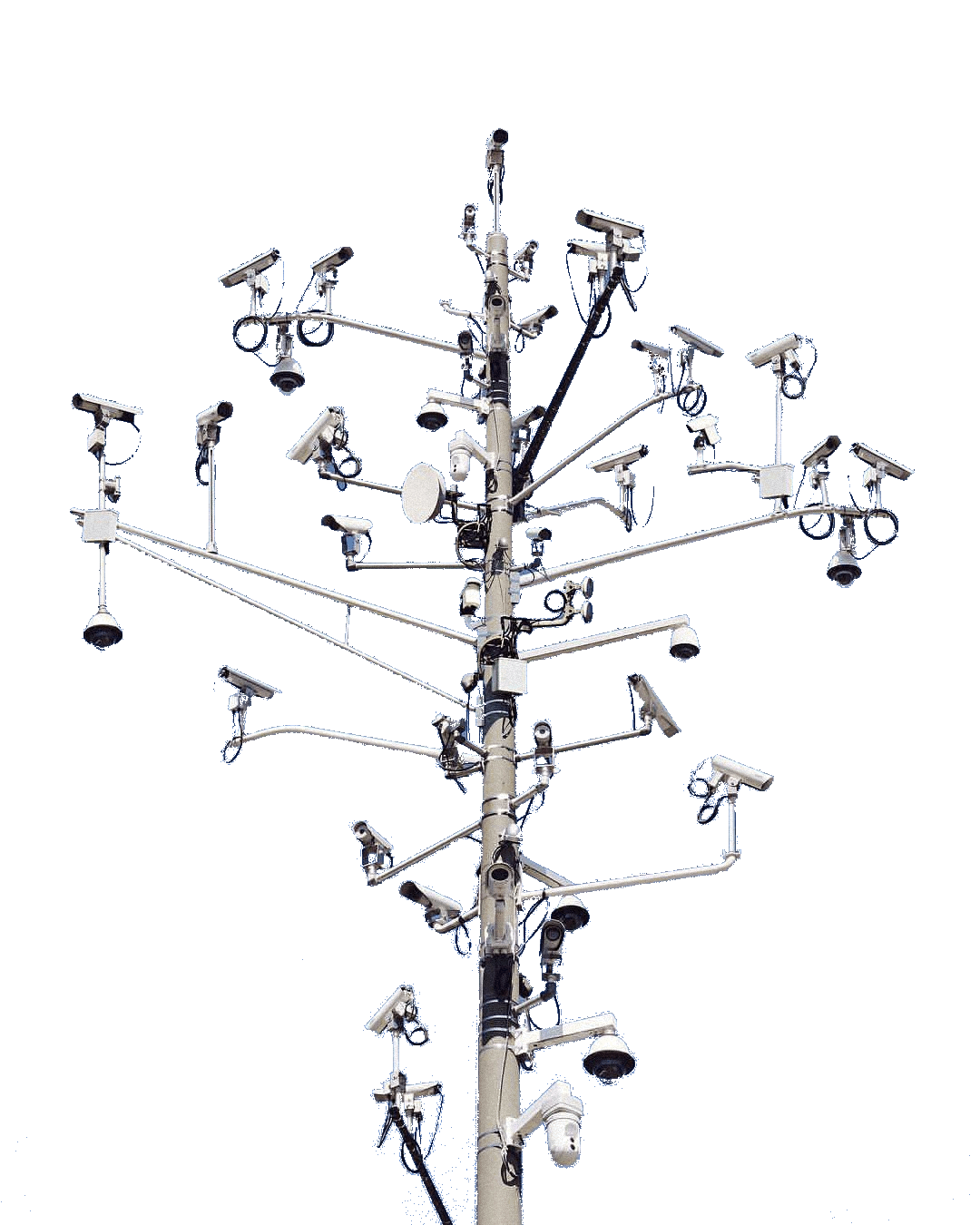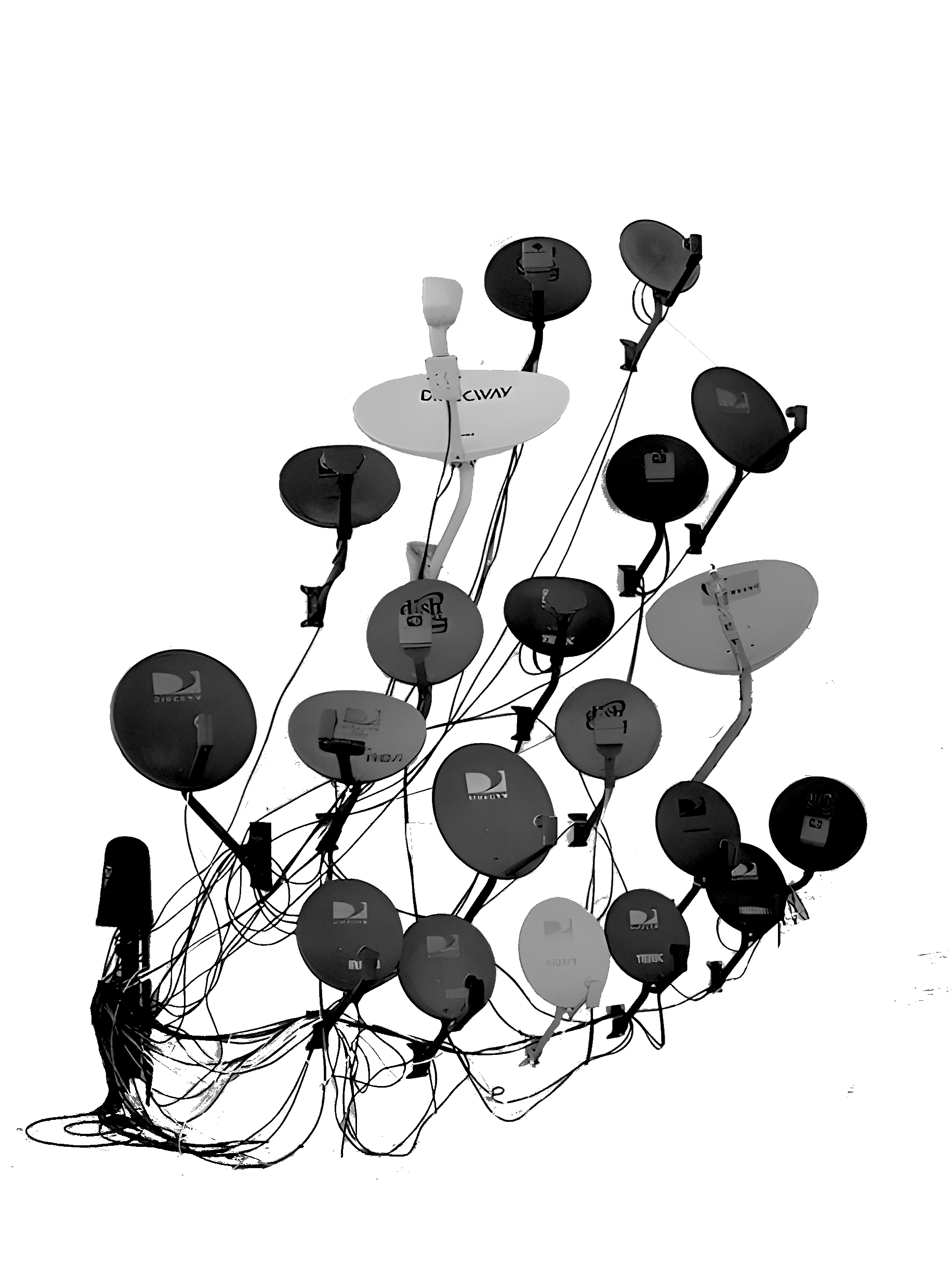I N T E R N E T . E T H O S
> "The internet sucks! They ruined it! It used to be so cooooooool!"
> - Conner O'Malley
Do you remember stumbleupon? It was this weird little browser extension that let you make an account- select some interesting topics- and then just go. Press a button and the page refreshes. With it, comes up some random page from the depths of the internet. Some artists blog, some bit of creative writing, some science article, anything. I used it religiously in middle school. (that's circa 2008 -2011 if you want to either feel old, or think I'm old.)
I saw some neat things here. This is where I was exposed to Damien Hirst for the first time. An edgy artist who works in the media of dead flesh and formaldehyde.

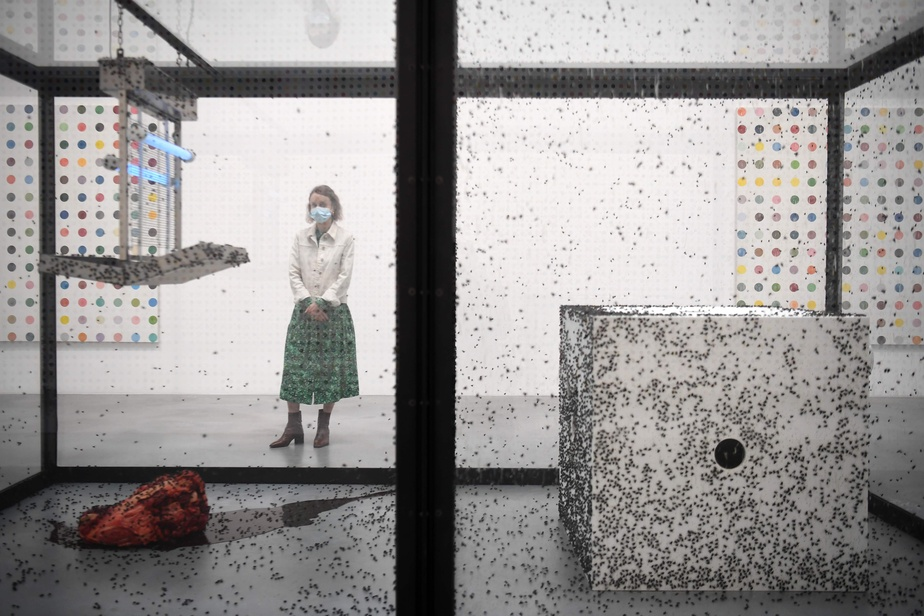 Or learned about this more indie online artist, Joey Comeau. Author of some interesting horror novels like One Bloody Thing After Another- a fraught lesbian love story between a girl who loves the sound of broken glass, and a girl who barely notices her because she has bigger fish to fry. Like her mom, locked in the basement, devolving into a monster that needs raw flesh to survive.
Or learned about this more indie online artist, Joey Comeau. Author of some interesting horror novels like One Bloody Thing After Another- a fraught lesbian love story between a girl who loves the sound of broken glass, and a girl who barely notices her because she has bigger fish to fry. Like her mom, locked in the basement, devolving into a monster that needs raw flesh to survive.
 or Bible Camp Bloodbath. A slasher romp that, while playing on some unfortunately transphobic tropes, has the alternative reading of a sensitive kid being literally chased down by a representation of dysphoria.
or Bible Camp Bloodbath. A slasher romp that, while playing on some unfortunately transphobic tropes, has the alternative reading of a sensitive kid being literally chased down by a representation of dysphoria.
 or his joint web comic with Emily Horne https://www.asofterworld.com/ of an entirely different set of vibes.
or his joint web comic with Emily Horne https://www.asofterworld.com/ of an entirely different set of vibes.
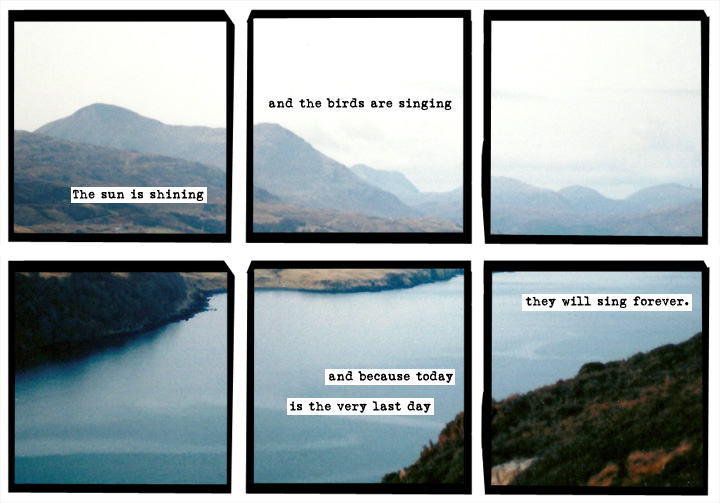 I also found my fair share of rants from Richard Dawkins. Hey I was 13 and I didn't say it was ALL good. This was the age of internet atheists after all, but even that has a tinge of nostalgia, because this was before the internet skeptic thing evolved into misogyny and transphobia and into alt-right then fascist extremism by way of incels. I guess it was a logical conclusion to their attitudes but I digress.
It's where I first came across this, very poignant to our current situation, comic from XKCD. I didn't understand it then - but after going to school for, and making a career out of, my weird corners of tech feels wildly relevant.
I also found my fair share of rants from Richard Dawkins. Hey I was 13 and I didn't say it was ALL good. This was the age of internet atheists after all, but even that has a tinge of nostalgia, because this was before the internet skeptic thing evolved into misogyny and transphobia and into alt-right then fascist extremism by way of incels. I guess it was a logical conclusion to their attitudes but I digress.
It's where I first came across this, very poignant to our current situation, comic from XKCD. I didn't understand it then - but after going to school for, and making a career out of, my weird corners of tech feels wildly relevant.
 I might sound like I'm just an old person yelling at clouds (I'm only 27 I promise) but the internet felt bigger then. It felt kinder.
...
Internet platforms have evolved into crowded silos owned by international corporations selling our user data to advertisers with increasingly biased content moderation to prune and cultivate content that corporations will feel comfortable advertising alongside.
This moderation is biased against queer people for not being "Family Friendly". YouTube in 2019 was facing a [lawsuit](https://www.theverge.com/2020/6/3/21278050/youtube-lawsuit-lgbtq-google-doj-section-230-trump-executive-order) for their moderation demonetizing queer creators. Additionally [this ISI article](https://www.isi.edu/news/72754/flagged-for-being-queer/) outlines how one result of this set of decisions across the board is, in effect, making calls FOR the queer community about what slurs can be reclaimed.
The effort to cater to the lowest common denominator of advertisers is also changing the lexicon of online spaces with advertiser friendly terms like "unalived" or censoring even anatomically correct and nonsexual references to genitalia.
One impact of this is a limitation on the effectiveness of journalism, and the ease with which journalists are allowed to discuss difficult topics like terrorism, drugs, LGBTQ+ issues [as spoken about here by the International Journalists Network](https://ijnet.org/en/story/unaliving-language-online-how-journalists-can-decode-%E2%80%98algospeak%E2%80%99-social-media).
The advertising itself is also deeply exploitative. Instagram a la Facebook knowingly targets vulnerable teens in times of distress to advertise to them. [This article referencing the recent book Careless People by Sarah Wynn-Williams](https://news.abplive.com/technology/facebook-knew-when-teenage-girls-deleted-selfies-alerted-advertisers-sarah-wynn-williams-claims-meta-denies-1756777) a former Facebook exec summarizes:
>"The algorithm could infer that they were feeling worthless or unhappy," Wynn-Williams said, referring to previous reports of Meta's algorithm categorizing and targeting vulnerable teens.
>She elaborated with an example where Meta's platform capabilities allegedly detected when a teenage girl deleted a selfie, notifying beauty brands that it was a moment for them to advertise.
I often call Instagram "the eating disorder machine".
It's not just corporations. On platforms like Reddit there is increasing skepticism over the veracity of the people on it. It's been floated in pseudo-conspiratorial fashion that Reddit is a psyop by users like [FleshSimulator in this video](https://www.youtube.com/watch?v=V7GtYaruTys), and there isn't NO basis for this claim. Russia worked on something like this during the Chechen conflict on Runet forums. This Article [The Virtual Eye of Big Brother](https://web.archive.org/web/20191219182655/http://www.vestnik.com/issues/2003/0430/win/polyanskaya_krivov_lomko.htm) from as far back as 2003 by 3 Russian journalists. Quotes translated:
>Until 1998-99 Runet forums were quite homogeneous in sociological characteristics users. Percentage of 70-80 audience consisted of associates, people liberal and democratic beliefs, representatives of the middle class of Russia and Russian emigration. Now, in just four years, totalitarian opinions on Russian forums suddenly became - up to 60-80% of all speeches.
This pretty closely mirrors the shift I'd seen on the internet in my time growing up here. Shifting from more liberal, more educational, more compassionate to something more accurately summed up here:
> The defensive-aggressive, totalitarian ideology preached by these people is not the main feature here. Some members of this group even try to look relatively liberal. But, in addition to the usual "statist" ideology (as well as xenophobia, anti-Americanism, Antisemitism and intolerance of dissent), these people are distinguished by a rigid attitude, group corporate morality, a common information base, clear norms of behavior and very specific methods of polemics and "working with the object". This group has principles of mass consciousness processing that are uniform for all forums, associated primarily with conscious and systematic lies, slander and disinformation.
Often people seem to live in different worlds entirely. For example, arguments about the cost of goods and services in the same city, where both a "brigade member" and a liberal live, look quite anecdotal. It seems that people live not only in different cities, but also on different planets. r/Seattle and r/SeattleWA for example.
The US has performed operations like this in other countries [spoken about here](https://www.voanews.com/a/meta-report-us-military-behind-online-influence-campaign-targeting-central-asia-middle-east/6848112.html) in a report ironically published by meta before the dismantling of its moderation and fact checking infrastructure.
> The fake accounts, which posted on themes such as sports or culture, emphasized cooperation with the U.S. and criticized Iran, China and Russia, Meta said. The postings, mostly made during U.S. East Coast business hours, were primarily in Arabic, Farsi and Russian. They praised the U.S. military and included COVID-19 content, which Meta removed for "violating our misinformation policy."
It's not wildly infeasible to assume this is happening here in the US by our government even if right now claims are not yet backed by concrete fact. Noam Chomsky's [Propaganda Model](https://en.wikipedia.org/wiki/Propaganda_model), which speaking to the manufacturing of consent through the use of mass media is, evolving. Now states propaganda arms can simply make up fake people that agree with them.
The mechanism for which I assume has something to do with the intersection between the psychology/sociology theories of [The Threshold Model](https://en.wikipedia.org/wiki/Threshold_model) and [Critical Mass Sociodynamics](https://en.wikipedia.org/wiki/Critical_mass_(sociodynamics)) wherein these bot accounts express increasingly extremist ideas and stances, people who are on that end of the political spectrum have their threshold to bandwagon met, and enough people doing that foments enough support to enact real world political change, but I am far from being educated enough in these areas to speak authoritatively and may be oversimplifying / misinterpreting.
...
I don't have a solution for this. I created my Neocities page instead of hosting elsewhere to try and engage in a different ethos of online ~~content~~ art and media creation. But I don't think that this is a holistic solution.
My attitude towards this kind of mirrors my attitude towards veganism. I consider myself vegan in ideology. However I do still eat fish on occasion, and would be lying if I said I scoured the ingredients lists of the foods I buy.
There's a few reasons for this- one being adhering too stringently to rules around food flips a switch in my brain that tends towards disordered eating.
But the other thing is this: that to truly make an impact way more people than just me (I'm the only one in my friend group who even tries) would have to be involved, but additionally, I truly believe that this kind of change can only occur at a legislative level.
Only an entity as big as a government could reasonably apply pressure to corporate entities to change. Maybe companies are offered substantial tax breaks or subsidies for being able to demonstrate measurably sustainable vegan supply chains.
Likewise I cannot fault anyone for not immediately abandoning Facebook / Instagram / Reddit.
Reddit hosts a large number of niche communities that are creating resources and documentation that aren't hosted elsewhere. Platforms like YouTube, Twitter, Instagram are host to a number of artists and creators that rely on those platforms (AND their advertising) for their income. Instagram is sometimes the only place you can get access to some of the fliers and calendars of local groups, venues, and events. Facebook is.... also there.
But the thing about all those places, is that what makes them good is US. We're the ones filling these otherwise empty malls with our creativity, and community, and connection.
So I do this.
Those things I found on StumbleUpon are still on the internet. They're still out there. Even if you do or don't happen across them because of RedBookGram or whatever.
And the infrastructure we use doesn't have to be this tool to further class inequality, or commit genocide. The Utopian ideals it was created under were to have this near infinite repository for the wealth of human knowledge. A mass equalizer breaking down the barriers of distance and class to give everyone the same information. The "library" of the internet in some flyover county in my home-state of Texas having the exact same contents as the biggest city.
But that doesn't make money.
Early internet engineers and founders spoke of this idealism. Originally created and maintained by universities to share data, early internet engineers like Joseph Carl Robnett Licklider at MIT were, as early as 1960, writing papers like Man-Computer Symbiosis and talking about an "Intergalactic Computer Network" which he "imagined as an electronic commons open to all, 'the main and essential medium of informational interaction for governments, institutions, corporations, and individuals.'"
Before the CIA aided coup against the socialist Chilean government in the 1970's, Chile was working on a project called Cybersyn. A computerized way to socialize the national economy. Doing some reading on this I found this quote I like from Eden Medina in an [interview with Indiana University](https://web.archive.org/web/20090910060602/http://newsinfo.iu.edu/web/page/normal/11088.html), who at the time was writing a book on Cybersyn:
>Studying [Cybersyn] helps us see that even something we view as very technical, like a computer, is also a social object.
...
While I don't have solutions, It makes me happy to see other people discussing this. For one I enjoy neocities user sadgrl's [Internet Manifesto](https://goblin-heart.net/sadgrl/cyberspace/internet-manifesto). Which talks about how some degree of the responsibility for change is on us, and outlines some general guidelines for how we can go about "[working] on changing social relations online".
I'm also a fan of this graphic from GEFFINE a "hyperlocal glitchzine for the disconnected. Published in .txt. Distributed via cyberpunkonline.net". (which is also VERY much worth [checking out](https://cult.cyberpunkonline.net/geffine/))
I might sound like I'm just an old person yelling at clouds (I'm only 27 I promise) but the internet felt bigger then. It felt kinder.
...
Internet platforms have evolved into crowded silos owned by international corporations selling our user data to advertisers with increasingly biased content moderation to prune and cultivate content that corporations will feel comfortable advertising alongside.
This moderation is biased against queer people for not being "Family Friendly". YouTube in 2019 was facing a [lawsuit](https://www.theverge.com/2020/6/3/21278050/youtube-lawsuit-lgbtq-google-doj-section-230-trump-executive-order) for their moderation demonetizing queer creators. Additionally [this ISI article](https://www.isi.edu/news/72754/flagged-for-being-queer/) outlines how one result of this set of decisions across the board is, in effect, making calls FOR the queer community about what slurs can be reclaimed.
The effort to cater to the lowest common denominator of advertisers is also changing the lexicon of online spaces with advertiser friendly terms like "unalived" or censoring even anatomically correct and nonsexual references to genitalia.
One impact of this is a limitation on the effectiveness of journalism, and the ease with which journalists are allowed to discuss difficult topics like terrorism, drugs, LGBTQ+ issues [as spoken about here by the International Journalists Network](https://ijnet.org/en/story/unaliving-language-online-how-journalists-can-decode-%E2%80%98algospeak%E2%80%99-social-media).
The advertising itself is also deeply exploitative. Instagram a la Facebook knowingly targets vulnerable teens in times of distress to advertise to them. [This article referencing the recent book Careless People by Sarah Wynn-Williams](https://news.abplive.com/technology/facebook-knew-when-teenage-girls-deleted-selfies-alerted-advertisers-sarah-wynn-williams-claims-meta-denies-1756777) a former Facebook exec summarizes:
>"The algorithm could infer that they were feeling worthless or unhappy," Wynn-Williams said, referring to previous reports of Meta's algorithm categorizing and targeting vulnerable teens.
>She elaborated with an example where Meta's platform capabilities allegedly detected when a teenage girl deleted a selfie, notifying beauty brands that it was a moment for them to advertise.
I often call Instagram "the eating disorder machine".
It's not just corporations. On platforms like Reddit there is increasing skepticism over the veracity of the people on it. It's been floated in pseudo-conspiratorial fashion that Reddit is a psyop by users like [FleshSimulator in this video](https://www.youtube.com/watch?v=V7GtYaruTys), and there isn't NO basis for this claim. Russia worked on something like this during the Chechen conflict on Runet forums. This Article [The Virtual Eye of Big Brother](https://web.archive.org/web/20191219182655/http://www.vestnik.com/issues/2003/0430/win/polyanskaya_krivov_lomko.htm) from as far back as 2003 by 3 Russian journalists. Quotes translated:
>Until 1998-99 Runet forums were quite homogeneous in sociological characteristics users. Percentage of 70-80 audience consisted of associates, people liberal and democratic beliefs, representatives of the middle class of Russia and Russian emigration. Now, in just four years, totalitarian opinions on Russian forums suddenly became - up to 60-80% of all speeches.
This pretty closely mirrors the shift I'd seen on the internet in my time growing up here. Shifting from more liberal, more educational, more compassionate to something more accurately summed up here:
> The defensive-aggressive, totalitarian ideology preached by these people is not the main feature here. Some members of this group even try to look relatively liberal. But, in addition to the usual "statist" ideology (as well as xenophobia, anti-Americanism, Antisemitism and intolerance of dissent), these people are distinguished by a rigid attitude, group corporate morality, a common information base, clear norms of behavior and very specific methods of polemics and "working with the object". This group has principles of mass consciousness processing that are uniform for all forums, associated primarily with conscious and systematic lies, slander and disinformation.
Often people seem to live in different worlds entirely. For example, arguments about the cost of goods and services in the same city, where both a "brigade member" and a liberal live, look quite anecdotal. It seems that people live not only in different cities, but also on different planets. r/Seattle and r/SeattleWA for example.
The US has performed operations like this in other countries [spoken about here](https://www.voanews.com/a/meta-report-us-military-behind-online-influence-campaign-targeting-central-asia-middle-east/6848112.html) in a report ironically published by meta before the dismantling of its moderation and fact checking infrastructure.
> The fake accounts, which posted on themes such as sports or culture, emphasized cooperation with the U.S. and criticized Iran, China and Russia, Meta said. The postings, mostly made during U.S. East Coast business hours, were primarily in Arabic, Farsi and Russian. They praised the U.S. military and included COVID-19 content, which Meta removed for "violating our misinformation policy."
It's not wildly infeasible to assume this is happening here in the US by our government even if right now claims are not yet backed by concrete fact. Noam Chomsky's [Propaganda Model](https://en.wikipedia.org/wiki/Propaganda_model), which speaking to the manufacturing of consent through the use of mass media is, evolving. Now states propaganda arms can simply make up fake people that agree with them.
The mechanism for which I assume has something to do with the intersection between the psychology/sociology theories of [The Threshold Model](https://en.wikipedia.org/wiki/Threshold_model) and [Critical Mass Sociodynamics](https://en.wikipedia.org/wiki/Critical_mass_(sociodynamics)) wherein these bot accounts express increasingly extremist ideas and stances, people who are on that end of the political spectrum have their threshold to bandwagon met, and enough people doing that foments enough support to enact real world political change, but I am far from being educated enough in these areas to speak authoritatively and may be oversimplifying / misinterpreting.
...
I don't have a solution for this. I created my Neocities page instead of hosting elsewhere to try and engage in a different ethos of online ~~content~~ art and media creation. But I don't think that this is a holistic solution.
My attitude towards this kind of mirrors my attitude towards veganism. I consider myself vegan in ideology. However I do still eat fish on occasion, and would be lying if I said I scoured the ingredients lists of the foods I buy.
There's a few reasons for this- one being adhering too stringently to rules around food flips a switch in my brain that tends towards disordered eating.
But the other thing is this: that to truly make an impact way more people than just me (I'm the only one in my friend group who even tries) would have to be involved, but additionally, I truly believe that this kind of change can only occur at a legislative level.
Only an entity as big as a government could reasonably apply pressure to corporate entities to change. Maybe companies are offered substantial tax breaks or subsidies for being able to demonstrate measurably sustainable vegan supply chains.
Likewise I cannot fault anyone for not immediately abandoning Facebook / Instagram / Reddit.
Reddit hosts a large number of niche communities that are creating resources and documentation that aren't hosted elsewhere. Platforms like YouTube, Twitter, Instagram are host to a number of artists and creators that rely on those platforms (AND their advertising) for their income. Instagram is sometimes the only place you can get access to some of the fliers and calendars of local groups, venues, and events. Facebook is.... also there.
But the thing about all those places, is that what makes them good is US. We're the ones filling these otherwise empty malls with our creativity, and community, and connection.
So I do this.
Those things I found on StumbleUpon are still on the internet. They're still out there. Even if you do or don't happen across them because of RedBookGram or whatever.
And the infrastructure we use doesn't have to be this tool to further class inequality, or commit genocide. The Utopian ideals it was created under were to have this near infinite repository for the wealth of human knowledge. A mass equalizer breaking down the barriers of distance and class to give everyone the same information. The "library" of the internet in some flyover county in my home-state of Texas having the exact same contents as the biggest city.
But that doesn't make money.
Early internet engineers and founders spoke of this idealism. Originally created and maintained by universities to share data, early internet engineers like Joseph Carl Robnett Licklider at MIT were, as early as 1960, writing papers like Man-Computer Symbiosis and talking about an "Intergalactic Computer Network" which he "imagined as an electronic commons open to all, 'the main and essential medium of informational interaction for governments, institutions, corporations, and individuals.'"
Before the CIA aided coup against the socialist Chilean government in the 1970's, Chile was working on a project called Cybersyn. A computerized way to socialize the national economy. Doing some reading on this I found this quote I like from Eden Medina in an [interview with Indiana University](https://web.archive.org/web/20090910060602/http://newsinfo.iu.edu/web/page/normal/11088.html), who at the time was writing a book on Cybersyn:
>Studying [Cybersyn] helps us see that even something we view as very technical, like a computer, is also a social object.
...
While I don't have solutions, It makes me happy to see other people discussing this. For one I enjoy neocities user sadgrl's [Internet Manifesto](https://goblin-heart.net/sadgrl/cyberspace/internet-manifesto). Which talks about how some degree of the responsibility for change is on us, and outlines some general guidelines for how we can go about "[working] on changing social relations online".
I'm also a fan of this graphic from GEFFINE a "hyperlocal glitchzine for the disconnected. Published in .txt. Distributed via cyberpunkonline.net". (which is also VERY much worth [checking out](https://cult.cyberpunkonline.net/geffine/))
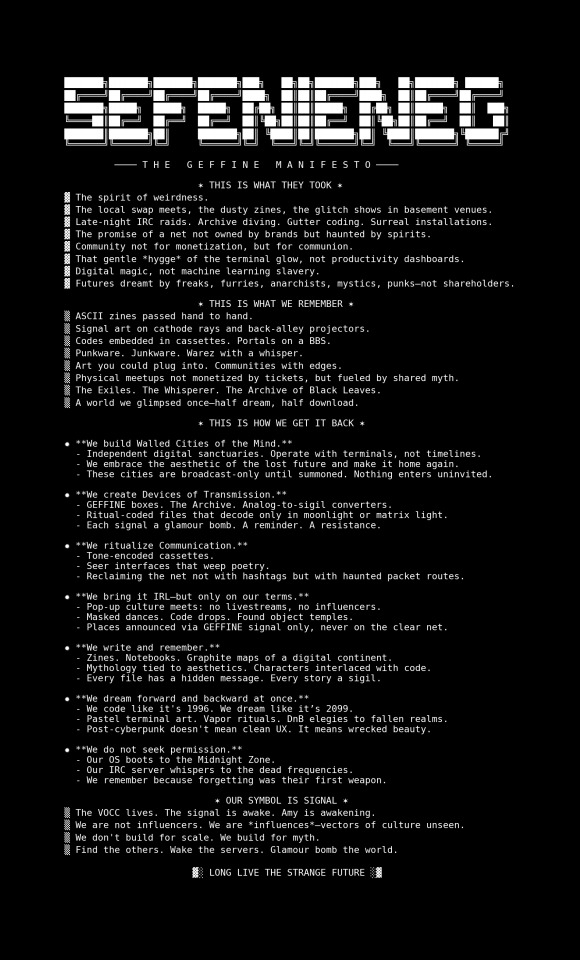 ...
The internet is not literally any smaller now, as I've before said it *feels*. If anything there are even more incredible and artistic people online creating art that is even more niche and less marketable than ever. It's our responsibly to revel in it, participate in it, and celebrate it. Ultimately only homegrown political action, and direct actions of protest will change anything, but until then we have this.
...
The internet is not literally any smaller now, as I've before said it *feels*. If anything there are even more incredible and artistic people online creating art that is even more niche and less marketable than ever. It's our responsibly to revel in it, participate in it, and celebrate it. Ultimately only homegrown political action, and direct actions of protest will change anything, but until then we have this.

 Or learned about this more indie online artist, Joey Comeau. Author of some interesting horror novels like One Bloody Thing After Another- a fraught lesbian love story between a girl who loves the sound of broken glass, and a girl who barely notices her because she has bigger fish to fry. Like her mom, locked in the basement, devolving into a monster that needs raw flesh to survive.
Or learned about this more indie online artist, Joey Comeau. Author of some interesting horror novels like One Bloody Thing After Another- a fraught lesbian love story between a girl who loves the sound of broken glass, and a girl who barely notices her because she has bigger fish to fry. Like her mom, locked in the basement, devolving into a monster that needs raw flesh to survive.
 or Bible Camp Bloodbath. A slasher romp that, while playing on some unfortunately transphobic tropes, has the alternative reading of a sensitive kid being literally chased down by a representation of dysphoria.
or Bible Camp Bloodbath. A slasher romp that, while playing on some unfortunately transphobic tropes, has the alternative reading of a sensitive kid being literally chased down by a representation of dysphoria.
 or his joint web comic with Emily Horne https://www.asofterworld.com/ of an entirely different set of vibes.
or his joint web comic with Emily Horne https://www.asofterworld.com/ of an entirely different set of vibes.
 I also found my fair share of rants from Richard Dawkins. Hey I was 13 and I didn't say it was ALL good. This was the age of internet atheists after all, but even that has a tinge of nostalgia, because this was before the internet skeptic thing evolved into misogyny and transphobia and into alt-right then fascist extremism by way of incels. I guess it was a logical conclusion to their attitudes but I digress.
It's where I first came across this, very poignant to our current situation, comic from XKCD. I didn't understand it then - but after going to school for, and making a career out of, my weird corners of tech feels wildly relevant.
I also found my fair share of rants from Richard Dawkins. Hey I was 13 and I didn't say it was ALL good. This was the age of internet atheists after all, but even that has a tinge of nostalgia, because this was before the internet skeptic thing evolved into misogyny and transphobia and into alt-right then fascist extremism by way of incels. I guess it was a logical conclusion to their attitudes but I digress.
It's where I first came across this, very poignant to our current situation, comic from XKCD. I didn't understand it then - but after going to school for, and making a career out of, my weird corners of tech feels wildly relevant.
 I might sound like I'm just an old person yelling at clouds (I'm only 27 I promise) but the internet felt bigger then. It felt kinder.
...
Internet platforms have evolved into crowded silos owned by international corporations selling our user data to advertisers with increasingly biased content moderation to prune and cultivate content that corporations will feel comfortable advertising alongside.
This moderation is biased against queer people for not being "Family Friendly". YouTube in 2019 was facing a [lawsuit](https://www.theverge.com/2020/6/3/21278050/youtube-lawsuit-lgbtq-google-doj-section-230-trump-executive-order) for their moderation demonetizing queer creators. Additionally [this ISI article](https://www.isi.edu/news/72754/flagged-for-being-queer/) outlines how one result of this set of decisions across the board is, in effect, making calls FOR the queer community about what slurs can be reclaimed.
The effort to cater to the lowest common denominator of advertisers is also changing the lexicon of online spaces with advertiser friendly terms like "unalived" or censoring even anatomically correct and nonsexual references to genitalia.
One impact of this is a limitation on the effectiveness of journalism, and the ease with which journalists are allowed to discuss difficult topics like terrorism, drugs, LGBTQ+ issues [as spoken about here by the International Journalists Network](https://ijnet.org/en/story/unaliving-language-online-how-journalists-can-decode-%E2%80%98algospeak%E2%80%99-social-media).
The advertising itself is also deeply exploitative. Instagram a la Facebook knowingly targets vulnerable teens in times of distress to advertise to them. [This article referencing the recent book Careless People by Sarah Wynn-Williams](https://news.abplive.com/technology/facebook-knew-when-teenage-girls-deleted-selfies-alerted-advertisers-sarah-wynn-williams-claims-meta-denies-1756777) a former Facebook exec summarizes:
>"The algorithm could infer that they were feeling worthless or unhappy," Wynn-Williams said, referring to previous reports of Meta's algorithm categorizing and targeting vulnerable teens.
>She elaborated with an example where Meta's platform capabilities allegedly detected when a teenage girl deleted a selfie, notifying beauty brands that it was a moment for them to advertise.
I often call Instagram "the eating disorder machine".
It's not just corporations. On platforms like Reddit there is increasing skepticism over the veracity of the people on it. It's been floated in pseudo-conspiratorial fashion that Reddit is a psyop by users like [FleshSimulator in this video](https://www.youtube.com/watch?v=V7GtYaruTys), and there isn't NO basis for this claim. Russia worked on something like this during the Chechen conflict on Runet forums. This Article [The Virtual Eye of Big Brother](https://web.archive.org/web/20191219182655/http://www.vestnik.com/issues/2003/0430/win/polyanskaya_krivov_lomko.htm) from as far back as 2003 by 3 Russian journalists. Quotes translated:
>Until 1998-99 Runet forums were quite homogeneous in sociological characteristics users. Percentage of 70-80 audience consisted of associates, people liberal and democratic beliefs, representatives of the middle class of Russia and Russian emigration. Now, in just four years, totalitarian opinions on Russian forums suddenly became - up to 60-80% of all speeches.
This pretty closely mirrors the shift I'd seen on the internet in my time growing up here. Shifting from more liberal, more educational, more compassionate to something more accurately summed up here:
> The defensive-aggressive, totalitarian ideology preached by these people is not the main feature here. Some members of this group even try to look relatively liberal. But, in addition to the usual "statist" ideology (as well as xenophobia, anti-Americanism, Antisemitism and intolerance of dissent), these people are distinguished by a rigid attitude, group corporate morality, a common information base, clear norms of behavior and very specific methods of polemics and "working with the object". This group has principles of mass consciousness processing that are uniform for all forums, associated primarily with conscious and systematic lies, slander and disinformation.
Often people seem to live in different worlds entirely. For example, arguments about the cost of goods and services in the same city, where both a "brigade member" and a liberal live, look quite anecdotal. It seems that people live not only in different cities, but also on different planets. r/Seattle and r/SeattleWA for example.
The US has performed operations like this in other countries [spoken about here](https://www.voanews.com/a/meta-report-us-military-behind-online-influence-campaign-targeting-central-asia-middle-east/6848112.html) in a report ironically published by meta before the dismantling of its moderation and fact checking infrastructure.
> The fake accounts, which posted on themes such as sports or culture, emphasized cooperation with the U.S. and criticized Iran, China and Russia, Meta said. The postings, mostly made during U.S. East Coast business hours, were primarily in Arabic, Farsi and Russian. They praised the U.S. military and included COVID-19 content, which Meta removed for "violating our misinformation policy."
It's not wildly infeasible to assume this is happening here in the US by our government even if right now claims are not yet backed by concrete fact. Noam Chomsky's [Propaganda Model](https://en.wikipedia.org/wiki/Propaganda_model), which speaking to the manufacturing of consent through the use of mass media is, evolving. Now states propaganda arms can simply make up fake people that agree with them.
The mechanism for which I assume has something to do with the intersection between the psychology/sociology theories of [The Threshold Model](https://en.wikipedia.org/wiki/Threshold_model) and [Critical Mass Sociodynamics](https://en.wikipedia.org/wiki/Critical_mass_(sociodynamics)) wherein these bot accounts express increasingly extremist ideas and stances, people who are on that end of the political spectrum have their threshold to bandwagon met, and enough people doing that foments enough support to enact real world political change, but I am far from being educated enough in these areas to speak authoritatively and may be oversimplifying / misinterpreting.
...
I don't have a solution for this. I created my Neocities page instead of hosting elsewhere to try and engage in a different ethos of online ~~content~~ art and media creation. But I don't think that this is a holistic solution.
My attitude towards this kind of mirrors my attitude towards veganism. I consider myself vegan in ideology. However I do still eat fish on occasion, and would be lying if I said I scoured the ingredients lists of the foods I buy.
There's a few reasons for this- one being adhering too stringently to rules around food flips a switch in my brain that tends towards disordered eating.
But the other thing is this: that to truly make an impact way more people than just me (I'm the only one in my friend group who even tries) would have to be involved, but additionally, I truly believe that this kind of change can only occur at a legislative level.
Only an entity as big as a government could reasonably apply pressure to corporate entities to change. Maybe companies are offered substantial tax breaks or subsidies for being able to demonstrate measurably sustainable vegan supply chains.
Likewise I cannot fault anyone for not immediately abandoning Facebook / Instagram / Reddit.
Reddit hosts a large number of niche communities that are creating resources and documentation that aren't hosted elsewhere. Platforms like YouTube, Twitter, Instagram are host to a number of artists and creators that rely on those platforms (AND their advertising) for their income. Instagram is sometimes the only place you can get access to some of the fliers and calendars of local groups, venues, and events. Facebook is.... also there.
But the thing about all those places, is that what makes them good is US. We're the ones filling these otherwise empty malls with our creativity, and community, and connection.
So I do this.
Those things I found on StumbleUpon are still on the internet. They're still out there. Even if you do or don't happen across them because of RedBookGram or whatever.
And the infrastructure we use doesn't have to be this tool to further class inequality, or commit genocide. The Utopian ideals it was created under were to have this near infinite repository for the wealth of human knowledge. A mass equalizer breaking down the barriers of distance and class to give everyone the same information. The "library" of the internet in some flyover county in my home-state of Texas having the exact same contents as the biggest city.
But that doesn't make money.
Early internet engineers and founders spoke of this idealism. Originally created and maintained by universities to share data, early internet engineers like Joseph Carl Robnett Licklider at MIT were, as early as 1960, writing papers like Man-Computer Symbiosis and talking about an "Intergalactic Computer Network" which he "imagined as an electronic commons open to all, 'the main and essential medium of informational interaction for governments, institutions, corporations, and individuals.'"
Before the CIA aided coup against the socialist Chilean government in the 1970's, Chile was working on a project called Cybersyn. A computerized way to socialize the national economy. Doing some reading on this I found this quote I like from Eden Medina in an [interview with Indiana University](https://web.archive.org/web/20090910060602/http://newsinfo.iu.edu/web/page/normal/11088.html), who at the time was writing a book on Cybersyn:
>Studying [Cybersyn] helps us see that even something we view as very technical, like a computer, is also a social object.
...
While I don't have solutions, It makes me happy to see other people discussing this. For one I enjoy neocities user sadgrl's [Internet Manifesto](https://goblin-heart.net/sadgrl/cyberspace/internet-manifesto). Which talks about how some degree of the responsibility for change is on us, and outlines some general guidelines for how we can go about "[working] on changing social relations online".
I'm also a fan of this graphic from GEFFINE a "hyperlocal glitchzine for the disconnected. Published in .txt. Distributed via cyberpunkonline.net". (which is also VERY much worth [checking out](https://cult.cyberpunkonline.net/geffine/))
I might sound like I'm just an old person yelling at clouds (I'm only 27 I promise) but the internet felt bigger then. It felt kinder.
...
Internet platforms have evolved into crowded silos owned by international corporations selling our user data to advertisers with increasingly biased content moderation to prune and cultivate content that corporations will feel comfortable advertising alongside.
This moderation is biased against queer people for not being "Family Friendly". YouTube in 2019 was facing a [lawsuit](https://www.theverge.com/2020/6/3/21278050/youtube-lawsuit-lgbtq-google-doj-section-230-trump-executive-order) for their moderation demonetizing queer creators. Additionally [this ISI article](https://www.isi.edu/news/72754/flagged-for-being-queer/) outlines how one result of this set of decisions across the board is, in effect, making calls FOR the queer community about what slurs can be reclaimed.
The effort to cater to the lowest common denominator of advertisers is also changing the lexicon of online spaces with advertiser friendly terms like "unalived" or censoring even anatomically correct and nonsexual references to genitalia.
One impact of this is a limitation on the effectiveness of journalism, and the ease with which journalists are allowed to discuss difficult topics like terrorism, drugs, LGBTQ+ issues [as spoken about here by the International Journalists Network](https://ijnet.org/en/story/unaliving-language-online-how-journalists-can-decode-%E2%80%98algospeak%E2%80%99-social-media).
The advertising itself is also deeply exploitative. Instagram a la Facebook knowingly targets vulnerable teens in times of distress to advertise to them. [This article referencing the recent book Careless People by Sarah Wynn-Williams](https://news.abplive.com/technology/facebook-knew-when-teenage-girls-deleted-selfies-alerted-advertisers-sarah-wynn-williams-claims-meta-denies-1756777) a former Facebook exec summarizes:
>"The algorithm could infer that they were feeling worthless or unhappy," Wynn-Williams said, referring to previous reports of Meta's algorithm categorizing and targeting vulnerable teens.
>She elaborated with an example where Meta's platform capabilities allegedly detected when a teenage girl deleted a selfie, notifying beauty brands that it was a moment for them to advertise.
I often call Instagram "the eating disorder machine".
It's not just corporations. On platforms like Reddit there is increasing skepticism over the veracity of the people on it. It's been floated in pseudo-conspiratorial fashion that Reddit is a psyop by users like [FleshSimulator in this video](https://www.youtube.com/watch?v=V7GtYaruTys), and there isn't NO basis for this claim. Russia worked on something like this during the Chechen conflict on Runet forums. This Article [The Virtual Eye of Big Brother](https://web.archive.org/web/20191219182655/http://www.vestnik.com/issues/2003/0430/win/polyanskaya_krivov_lomko.htm) from as far back as 2003 by 3 Russian journalists. Quotes translated:
>Until 1998-99 Runet forums were quite homogeneous in sociological characteristics users. Percentage of 70-80 audience consisted of associates, people liberal and democratic beliefs, representatives of the middle class of Russia and Russian emigration. Now, in just four years, totalitarian opinions on Russian forums suddenly became - up to 60-80% of all speeches.
This pretty closely mirrors the shift I'd seen on the internet in my time growing up here. Shifting from more liberal, more educational, more compassionate to something more accurately summed up here:
> The defensive-aggressive, totalitarian ideology preached by these people is not the main feature here. Some members of this group even try to look relatively liberal. But, in addition to the usual "statist" ideology (as well as xenophobia, anti-Americanism, Antisemitism and intolerance of dissent), these people are distinguished by a rigid attitude, group corporate morality, a common information base, clear norms of behavior and very specific methods of polemics and "working with the object". This group has principles of mass consciousness processing that are uniform for all forums, associated primarily with conscious and systematic lies, slander and disinformation.
Often people seem to live in different worlds entirely. For example, arguments about the cost of goods and services in the same city, where both a "brigade member" and a liberal live, look quite anecdotal. It seems that people live not only in different cities, but also on different planets. r/Seattle and r/SeattleWA for example.
The US has performed operations like this in other countries [spoken about here](https://www.voanews.com/a/meta-report-us-military-behind-online-influence-campaign-targeting-central-asia-middle-east/6848112.html) in a report ironically published by meta before the dismantling of its moderation and fact checking infrastructure.
> The fake accounts, which posted on themes such as sports or culture, emphasized cooperation with the U.S. and criticized Iran, China and Russia, Meta said. The postings, mostly made during U.S. East Coast business hours, were primarily in Arabic, Farsi and Russian. They praised the U.S. military and included COVID-19 content, which Meta removed for "violating our misinformation policy."
It's not wildly infeasible to assume this is happening here in the US by our government even if right now claims are not yet backed by concrete fact. Noam Chomsky's [Propaganda Model](https://en.wikipedia.org/wiki/Propaganda_model), which speaking to the manufacturing of consent through the use of mass media is, evolving. Now states propaganda arms can simply make up fake people that agree with them.
The mechanism for which I assume has something to do with the intersection between the psychology/sociology theories of [The Threshold Model](https://en.wikipedia.org/wiki/Threshold_model) and [Critical Mass Sociodynamics](https://en.wikipedia.org/wiki/Critical_mass_(sociodynamics)) wherein these bot accounts express increasingly extremist ideas and stances, people who are on that end of the political spectrum have their threshold to bandwagon met, and enough people doing that foments enough support to enact real world political change, but I am far from being educated enough in these areas to speak authoritatively and may be oversimplifying / misinterpreting.
...
I don't have a solution for this. I created my Neocities page instead of hosting elsewhere to try and engage in a different ethos of online ~~content~~ art and media creation. But I don't think that this is a holistic solution.
My attitude towards this kind of mirrors my attitude towards veganism. I consider myself vegan in ideology. However I do still eat fish on occasion, and would be lying if I said I scoured the ingredients lists of the foods I buy.
There's a few reasons for this- one being adhering too stringently to rules around food flips a switch in my brain that tends towards disordered eating.
But the other thing is this: that to truly make an impact way more people than just me (I'm the only one in my friend group who even tries) would have to be involved, but additionally, I truly believe that this kind of change can only occur at a legislative level.
Only an entity as big as a government could reasonably apply pressure to corporate entities to change. Maybe companies are offered substantial tax breaks or subsidies for being able to demonstrate measurably sustainable vegan supply chains.
Likewise I cannot fault anyone for not immediately abandoning Facebook / Instagram / Reddit.
Reddit hosts a large number of niche communities that are creating resources and documentation that aren't hosted elsewhere. Platforms like YouTube, Twitter, Instagram are host to a number of artists and creators that rely on those platforms (AND their advertising) for their income. Instagram is sometimes the only place you can get access to some of the fliers and calendars of local groups, venues, and events. Facebook is.... also there.
But the thing about all those places, is that what makes them good is US. We're the ones filling these otherwise empty malls with our creativity, and community, and connection.
So I do this.
Those things I found on StumbleUpon are still on the internet. They're still out there. Even if you do or don't happen across them because of RedBookGram or whatever.
And the infrastructure we use doesn't have to be this tool to further class inequality, or commit genocide. The Utopian ideals it was created under were to have this near infinite repository for the wealth of human knowledge. A mass equalizer breaking down the barriers of distance and class to give everyone the same information. The "library" of the internet in some flyover county in my home-state of Texas having the exact same contents as the biggest city.
But that doesn't make money.
Early internet engineers and founders spoke of this idealism. Originally created and maintained by universities to share data, early internet engineers like Joseph Carl Robnett Licklider at MIT were, as early as 1960, writing papers like Man-Computer Symbiosis and talking about an "Intergalactic Computer Network" which he "imagined as an electronic commons open to all, 'the main and essential medium of informational interaction for governments, institutions, corporations, and individuals.'"
Before the CIA aided coup against the socialist Chilean government in the 1970's, Chile was working on a project called Cybersyn. A computerized way to socialize the national economy. Doing some reading on this I found this quote I like from Eden Medina in an [interview with Indiana University](https://web.archive.org/web/20090910060602/http://newsinfo.iu.edu/web/page/normal/11088.html), who at the time was writing a book on Cybersyn:
>Studying [Cybersyn] helps us see that even something we view as very technical, like a computer, is also a social object.
...
While I don't have solutions, It makes me happy to see other people discussing this. For one I enjoy neocities user sadgrl's [Internet Manifesto](https://goblin-heart.net/sadgrl/cyberspace/internet-manifesto). Which talks about how some degree of the responsibility for change is on us, and outlines some general guidelines for how we can go about "[working] on changing social relations online".
I'm also a fan of this graphic from GEFFINE a "hyperlocal glitchzine for the disconnected. Published in .txt. Distributed via cyberpunkonline.net". (which is also VERY much worth [checking out](https://cult.cyberpunkonline.net/geffine/))
 ...
The internet is not literally any smaller now, as I've before said it *feels*. If anything there are even more incredible and artistic people online creating art that is even more niche and less marketable than ever. It's our responsibly to revel in it, participate in it, and celebrate it. Ultimately only homegrown political action, and direct actions of protest will change anything, but until then we have this.
...
The internet is not literally any smaller now, as I've before said it *feels*. If anything there are even more incredible and artistic people online creating art that is even more niche and less marketable than ever. It's our responsibly to revel in it, participate in it, and celebrate it. Ultimately only homegrown political action, and direct actions of protest will change anything, but until then we have this.








